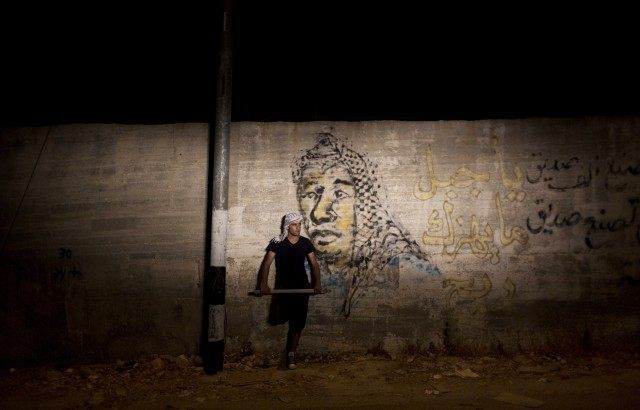On September 3rd, French prosecutors closed their investigation into the 2004 death of Palestinian Authority (PA) leader Yasser Arafat.
No autopsy was done at the time of his death as his widow, Suha, never requested one. Yet eight years later she had second thoughts. Claiming in 2012 her husband did not die a natural death but was the victim of a murder plot, French authorities opened an investigation.
In 2004, Arafat had taken ill, suffering a stroke, and was flown to Paris. Doctors diagnosed him as having a serious but unknown blood disorder. Swiss analysts and Al Jazeera news network had conducted their own investigation and found traces of polonium-210 on his belongings.
As this is the same radioactive element involved in the murder of former KGB agent Alexander Litvinenko in London in 2006, its presence in any human body raises concern.
While Suha claimed this was the real cause of her husband’s death, Arafat was a chain smoker. Cigarettes also can leave traces of polonium-210 in the body.
Three investigative teams—Swiss, French and Russian—were involved in the exhumation of Arafat’s tomb in Ramallah, West Bank, where tissue samples were extracted.
All three teams have now concluded polonium poisoning had “not been demonstrated,” bringing the case to a close.
But with the close of this investigation, another one is long overdue.
As her husband lay dying in 2004, Suha—who had not seen him for the previous four years—raced to his bedside. It was not to profess her love for the Palestinian leader but to press him for information about his bank accounts. She quickly became “executor of a vast fortune,” heading off PA leaders rushing to Arafat’s side to do the same.
As the Palestinian people were struggling to survive, Arafat’s wife, Suha, was not. In addition to receiving monthly payments of $200,000 from her husband, occasional deposits in the millions were made to her personal account—one alone of $11 million in the 2002/2003 timeframe. Living the high life in Paris, her monthly spending reportedly equaled what it would take to cover “the basic needs of five thousand Palestinian refugees in a place like Jabalya in the Gaza Strip.”
But this apparently was not enough for Suha, who clearly saw an opportunity to get much more as her husband was dying.
It was well known that millions of dollars in aid given to the Palestinian Authority had failed to reach the Palestinian people. Arafat, as well as other PA leaders, established their own personal bank accounts into which much of these funds were deposited.
Armed with all the banking information she needed to access Arafat’s accounts after his death, Suha cleverly positioned herself so that she held all the cards in negotiating with PA leaders for the release of the assets.
It is estimated Arafat, who controlled—according to CIA assessments—as much $6 billion in assets at one time, died with a mere $1 billion. Clearly, PA leaders were eager to get their hands on the money as well. While they eventually did, it was only after negotiating a settlement with Suha for an undisclosed amount.
An indication that Suha’s settlement was substantial is evidenced by the Tunisian government’s report a few years later her investments there alone totaled $40 million.
Arafat was not alone in sequestering for himself that which was not his for his own gain and to the detriment of the people whose wellbeing was in his charge.
It would be interesting to see what an accounting of the assets held in Arafat’s accounts would reveal. It would be no surprise to learn much of it never made it into the hands of the Palestinian people needing it most, instead being transferred into the personal accounts of other PA leaders.
A demand needs to be made for an investigation into the distribution of the assets from Arafat’s bank accounts. The U.S. should not contribute another cent to the PA until such an accounting is forthcoming. However, one can bet the late Palestinian leader’s bottom dollar there are two sources from which such a call will never emanate—neither from the PA leadership nor Suha Arafat.
Lt. Colonel James G. Zumwalt, USMC (Ret.), is a retired Marine infantry officer who served in the Vietnam war, the U.S. invasion of Panama and the first Gulf war. He is the author of “Bare Feet, Iron Will–Stories from the Other Side of Vietnam’s Battlefields,” “Living the Juche Lie: North Korea’s Kim Dynasty” and “Doomsday: Iran–The Clock is Ticking.” He frequently writes on foreign policy and defense issues.

COMMENTS
Please let us know if you're having issues with commenting.